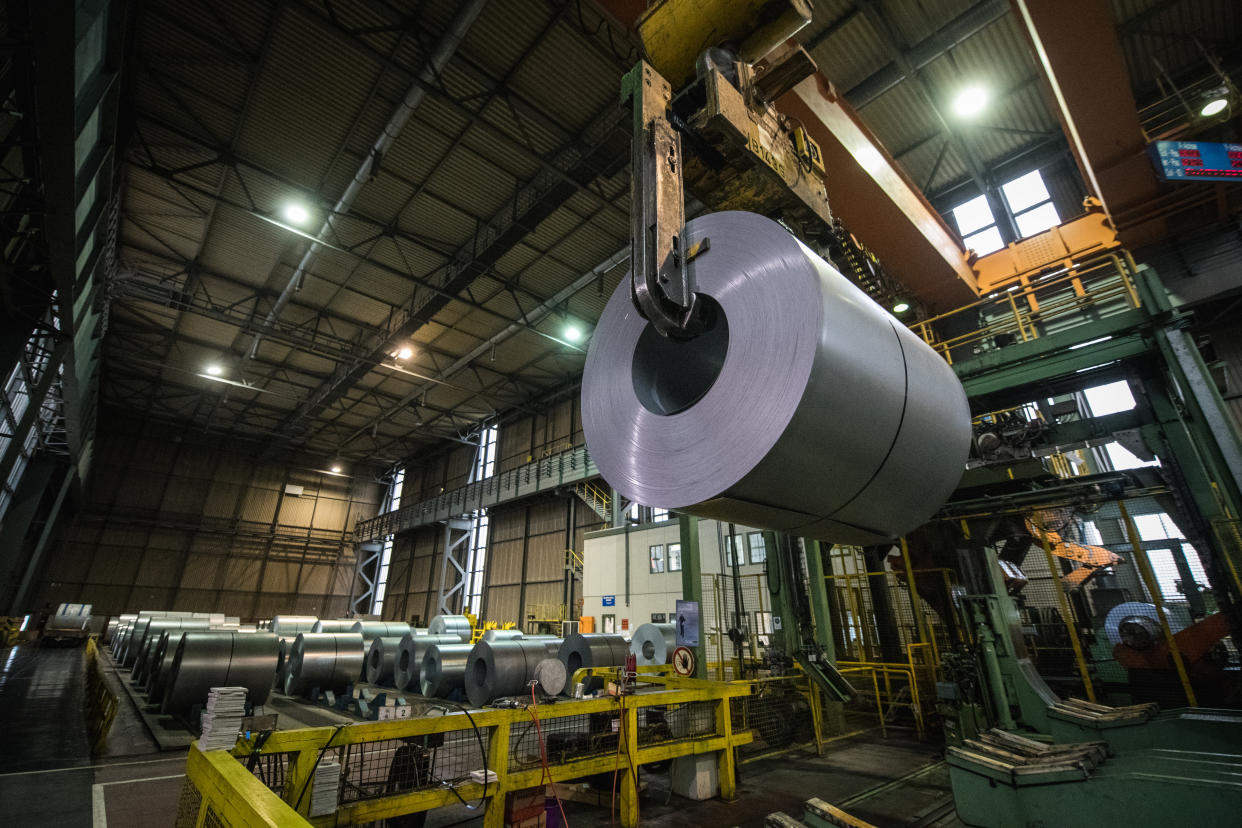Euro hits two-month low on back of stark manufacturing data

The euro fell against the dollar on Wednesday to levels not seen since May after a key indicator of growth in the European manufacturing sector hit its lowest level in almost seven years.
The euro fell almost 0.12% to $1.113 against the dollar (EURUSD=X) after research firm IHS Markit said that the manufacturing purchasing managers’ index for the euro zone fell to 46.4 in July.
The reading, down from 47.6 in June, suggests that the manufacturing sector is now contracting at its steepest rate since December 2012.
Manufacturers also reported the second-largest drop in new orders since 2012, with exports plunging the most since November 2011.
The index, which takes data from Germany, France, Italy, Spain, the Netherlands, Austria, Ireland, and Greece into account, surveys over 3,000 manufacturing firms.
Germany’s manufacturing sector saw the sharpest decline in activity since 2009, plunging to 43.1 from 45 in June, significantly below market expectations.
Data from France was also worse than analysts had forecast, suggesting that the slump is relatively pervasive.
“Given Germany’s position as a large exporter in this field its manufacturing figures can be viewed as a bellwether on the global economy and this suggests that the slowdown is not a phenomenon confined to the bloc,” said David Cheetham, chief market analyst with XTB.
While the European Central Bank is not expected to cut its already negative deposit interest rate on Thursday, it is thought that it will indicate that it will do so later this year in order to kick-start the euro zone’s stalling economy.
“Mario Draghi won’t be sleeping well tonight ahead of his crucial European Central Bank press conference tomorrow, particularly with the weak data out of the euro zone,” said Hamish Muress, a senior currency strategist at OFX.
The pan-European Stoxx 600 index (^STOXX) was down 0.18%.


